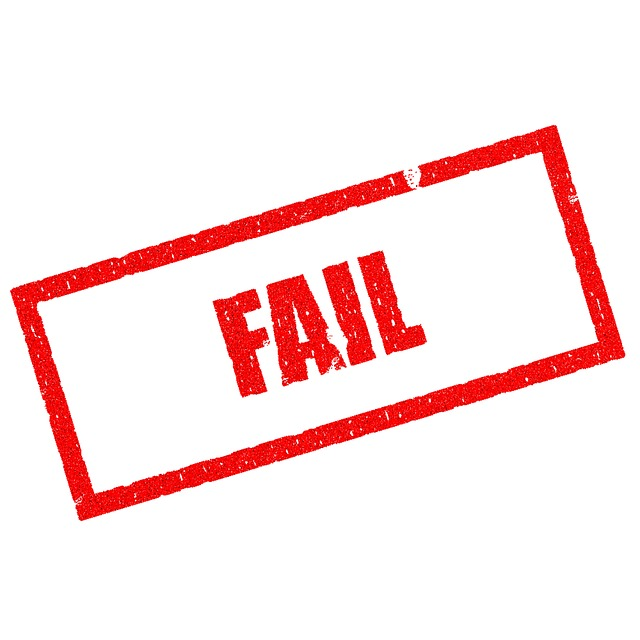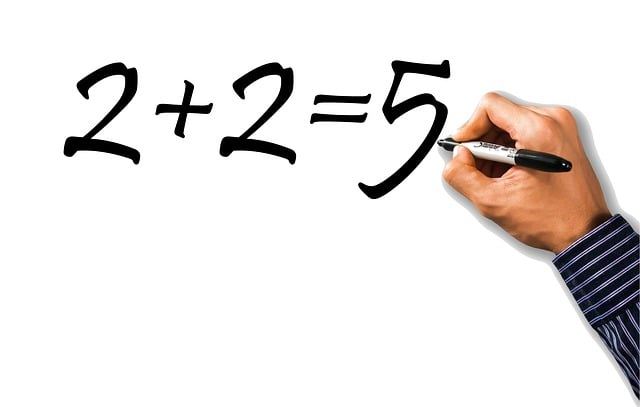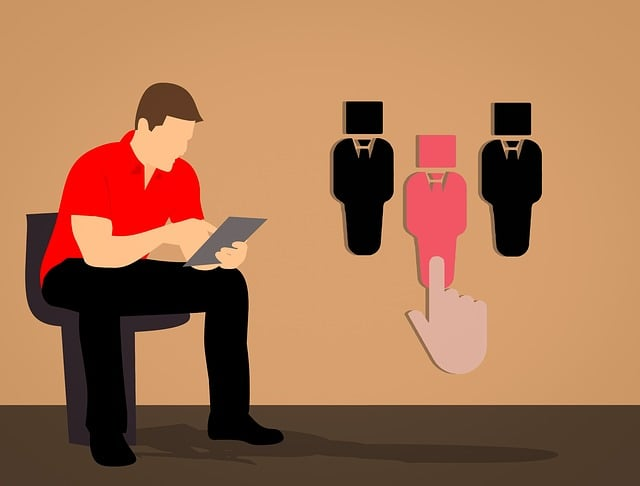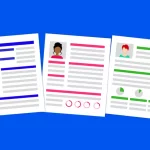Source: Pixabay
One effective way to gain valuable insights into a candidate’s qualifications, skills, and character is through reference checks (also called background checks). Reference checks are an integral part of the hiring process that involves contacting individuals who have had a professional relationship with the candidate to gather information. In this comprehensive guide, we will explore the purpose and importance of reference checks, different types of reference checks, best practices for conducting them, effective questioning techniques, role-specific reference check questions, tips for maximizing the value of background checks, common mistakes to avoid, reference check etiquette, the importance of follow-up, and concluding recommendations for successful reference checks in Ottawa.

Source: Pixabay
What is a Reference/Background Check?
A reference check is a process that involves contacting individuals who have worked with the candidate to gather information about their work performance, skills, and character. The purpose of a background check is to validate the information provided by the candidate, gain additional insights into their capabilities, and assess their suitability for the position.
Different Types of Reference Checks
There are several types of reference checks that employers can conduct:
Employment References
These references come from previous employers or supervisors who have directly worked with the candidate. They provide valuable insights into the candidate’s performance, work ethic, and professional conduct.
Character References
Character references are provided by individuals who have personal knowledge of the candidate’s traits, such as former colleagues or mentors. They can shed light on the candidate’s interpersonal skills, attitude, and integrity.
Academic References
Academic references are typically obtained from professors or educational institutions and can be valuable for recent graduates or candidates with limited work experience. They provide insights into the candidate’s educational achievements, intellectual abilities, and potential.
Image by OpenClipart-Vectors from Pixabay
Criminal Reference Checks
A criminal record check (CRC) is one of the most important reference checks you can do. They ensure workplace safety, cut down the risk of fraud, and guarantee someone is who they say they are, depending on the CRC. Here are the different types of CRCs:
Basic crc
This check will show if there’s a criminal history, including convictions and outstanding charges. It is commonly used for non-vulnerable positions where direct contact with vulnerable populations is not involved.
police crc
This type of check provides a summary of an individual’s criminal record, including convictions, outstanding charges, and other relevant information. It is commonly used for general purposes and may be required for various roles depending on the employer’s discretion.
enhanced or certified crc
Enhanced checks offer more details regarding a person’s criminal history. They may include additional information beyond convictions, such as non-conviction records and police contact. Enhanced checks are often required for positions involving high levels of trust, security, or responsibility.
vulnerable sector CHECK
This type of check is usually required for employees or volunteers working with vulnerable populations, such as children, the disabled, or the elderly. It includes what the enhanced check provides, but also includes sexual offenses that may not be revealed in a standard check.
Why Are Reference Checks Important?
Background checks play a pivotal role in the hiring process for several reasons:
Verification of Information: Reference checks allow employers to verify the accuracy and truthfulness of the information provided by the candidate. This ensures that the candidate possesses the necessary qualifications and experience for the role.
Deeper Insights: Background checks provide an opportunity to gain deeper insights into a candidate’s work performance, skills, and character. They offer a more complete picture of the candidate beyond what is presented on their resume or in an interview.
Cultural Fit Assessment: By contacting references, employers can assess the candidate’s compatibility with the company culture. This is particularly important for ensuring a harmonious and productive work environment.
Source: Pixabay
Benefits of Conducting Background Checks
Conducting thorough reference checks brings several benefits to the hiring process:
Enhanced Hiring Decisions: Reference checks provide additional information that helps employers make more informed hiring decisions. They minimize the risk of hiring candidates who may not be a good fit or who have misrepresented their qualifications.
Validation of Skills and Experience: By contacting references, employers can validate the candidate’s skills, experience, and accomplishments. This ensures that the candidate possesses the necessary expertise to excel in the role.
Identification of Strengths and Weaknesses: Background checks offer insights into the candidate’s strengths and weaknesses, allowing employers to determine how well the candidate’s skills align with the job requirements and the organization’s needs.
Source: Pixabay
Consequences of Not Conducting Reference Checks
Failing to conduct background checks can have negative consequences for the hiring process:
Increased Hiring Risks -Without reference checks, employers may unknowingly hire candidates who are unqualified or ill-suited for the role. This can lead to productivity issues, conflicts within the team, and potentially costly hiring mistakes.
Missed Red Flags – Background checks help identify any red flags or potential issues with the candidate. Not conducting reference checks may result in overlooking crucial information that could impact the candidate’s performance or fit within the organization.
Legal and Ethical Concerns – Neglecting reference checks can expose employers to legal and ethical risks. By not adequately vetting candidates, employers may inadvertently hire individuals with a history of misconduct or unethical behavior.
Source: Pixabay
How to Conduct a Reference Check
To conduct an effective background check, employers should follow best practices and consider legal considerations:
Contact Methods: Reference checks can be conducted through various methods, such as phone calls, emails, or online surveys. Choose a method that is convenient for both the employer and the reference.
Contacting References: When contacting references, it is essential to approach the conversation professionally and respectfully. Provide context about the role and the purpose of the reference check. Obtain the reference’s consent to proceed with the conversation.
Legal Considerations and Compliance: Employers must ensure compliance with local labor laws and privacy regulations when conducting reference checks. Familiarize yourself with the legal requirements in Ottawa to avoid any legal complications.
Documentation: It is very important to document the background check process and results. Keep detailed records of the conversations, including the date, time, and content discussed. This documentation can serve as evidence if any issues arise later.
Source: Pixabay
What Should You Ask in a Reference Check?
Crafting effective background check questions is key to obtaining valuable information. Consider the following guidelines:
Examples of Effective Reference Check Questions:
Can you provide details about the candidate’s job responsibilities and accomplishments
How would you rate the candidate’s ability to work in a team?
Can you comment on the candidate’s problem-solving skills and ability to handle challenges?
Guidelines for Formulating Questions
Formulate questions that elicit specific and useful information. Avoid yes/no questions and instead ask open-ended questions that encourage the reference to provide detailed responses.
Source: Pixabay
Reference Check Questions for Specific Roles
Different roles require different sets of skills and qualifications. Customize your questions based on the specific requirements of the role. Focus on the skills, experiences, and qualities that are critical for success in that particular position. Tailor your reference check questions accordingly:
Managerial Roles: Questions may include assessing the candidate’s leadership abilities, decision-making skills, and approach to managing teams.
Customer Service Roles: Inquire about the candidate’s communication skills, problem-solving abilities, and ability to handle customer complaints or difficult situations.
Technical Roles: Focus on the candidate’s technical proficiency, problem-solving skills, and ability to learn and adapt to new technologies.
Source: Pixabay
Tips for Getting the Most Out of Reference Checks
To maximize the value of background checks, consider the following tips:
Comprehensive Reference Checks
Seek references from different aspects of the candidate’s professional life, such as supervisors, peers, or subordinates. This provides a well-rounded perspective on the candidate’s performance and character.
Clear Evaluation Standards
Establish clear standards for evaluating reference check responses. This ensures consistency in the assessment process and helps in comparing different candidates.
Analyzing Reference Check Results
Evaluate the reference check results along with other employment standards, such as interviews. Look for patterns, red flags, or any important information that can influence your decision-making process.
Source: Pixabay
Common Mistakes to Avoid
Steer clear of these common mistakes when conducting reference checks:
Rushing the Process – Avoid rushing through background checks to meet employment deadlines. Dedicate sufficient time to completely consider each reference and their feedback.
Biased Interpretation – Be mindful of unconscious biases when reviewing reference check results. Give equal weight to positive and negative feedback and assess them objectively.
Neglecting Legal and Ethical Guidelines – Always stick to legal and ethical guidelines during background checks. Avoid asking discriminatory questions or violating privacy rights.
Reference Check Etiquette
Maintain professionalism and follow these guidelines during reference checks:
Approach References Professionally
Introduce yourself and your organization when contacting references. Clearly explain the purpose of the reference check and assure the reference that their feedback will be handled confidentially.
Requesting and Conducting Reference Checks
Request references from candidates early in the employment process. Respect the reference’s time and availability when scheduling the reference check.
Source: Pixabay
Reference Check Follow-Up
Following up with references is essential for closing the loop and maintaining professional relationships:
Importance of Follow-Up: Send a thank-you email or note to references for their time and cooperation. Inform them about the candidate’s employment decision and express your gratitude for their input.
Conducting Follow-Up Communication: Maintain open lines of communication with references, as they may be valuable contacts for future employment needs. Keep them informed about any developments or changes in the employment process.
Source: Pixabay
Conclusion
Reference checks are a powerful tool for employers looking at a new hire. They provide critical information, validate candidate qualifications, and offer insights into their work performance and character. By following best practices, tailoring questions, avoiding common mistakes, and following legal and ethical guidelines, employers in Ottawa can conduct effective background checks. Prioritizing reference checks allows employers to make informed hiring decisions, reduce risks, and build a talented and reliable workforce. So, take the necessary steps to implement strong reference check processes and unlock the potential for hiring success in Ottawa.




















